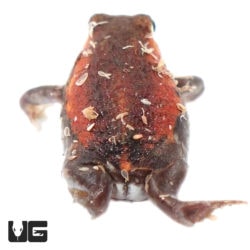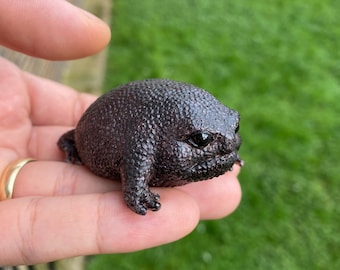Common Wellness Issues in Reptiles: Signs And Symptoms and Solutions
In the detailed globe of reptile treatment, comprehending the common health issues that might impact these special creatures is paramount in ensuring their health. From breathing infections that can quietly take hold to metabolic bone conditions that can disable, reptiles are prone to a variety of ailments that require eager observation and prompt intervention. Whether it's grappling with parasitical invasions, navigating dehydration problems, or attending to skin ailments that show up in refined ways, being in harmony with the signs and geared up with the expertise of efficient services is essential for any kind of reptile proprietor. By diving additionally into the subtleties of these health concerns and exploring the sensible treatments readily available, one can secure the health and vitality of these remarkable animals.
Respiratory System Infections
Respiratory system infections in reptiles can significantly affect their general wellness and call for punctual focus from seasoned vets. These infections are commonly triggered by fungis, germs, or viruses and can show up via signs and symptoms such as hissing, nasal discharge, open-mouth breathing, and sleepiness. In reptiles, breathing infections can be especially challenging to diagnose and treat due to their one-of-a-kind makeup and physiology. Vets usually rely upon a mix of checkups, diagnostic imaging, and laboratory examinations to precisely determine the underlying root cause of the infection.
Therapy for breathing infections in reptiles generally involves a mix of supportive treatment, such as maintaining correct humidity degrees and temperature slopes in the enclosure, along with targeted medicine to resolve the certain pathogen in charge of the infection. It is important for reptile owners to monitor their pets carefully for any indications of respiratory distress and seek vet care at the earliest indicator of a concern. With timely treatment and appropriate treatment, several reptiles can recover totally from respiratory infections and return to regular activities.

Metabolic Bone Condition
What elements contribute to the advancement of Metabolic Bone Illness in reptiles?
Metabolic Bone Disease (MBD) in reptiles is mainly triggered by a lack of appropriate calcium, phosphorus, and vitamin D3 levels in their diet regimen. When reptiles do not get sufficient calcium, either through their food or appropriate UVB exposure for vitamin D3 synthesis, they are at a high danger of establishing MBD. Reptiles with diet regimens reduced in calcium or unbalanced calcium to phosphorus proportions are specifically at risk. In addition, inadequate exposure to UVB light prevents reptiles from manufacturing vitamin D3, which is essential for calcium absorption and bone health and wellness.
Inadequate moisture levels can additionally affect a reptile's ability to metabolize calcium successfully. Regular veterinary exams, appropriate husbandry techniques, and a balanced diet regimen are important to protect against Metabolic Bone Illness in reptiles.
Parasitical Infestations
Parasitical infestations position a substantial health and wellness threat to reptiles, affecting their general health and requiring timely vet attention. Reptiles can be affected by different bloodsuckers, including mites, ticks, interior worms, and protozoa. These why not find out more bloodsuckers can cause a variety of signs and symptoms, such as fat burning, lethargy, skin inflammation, diarrhea, and also fatality if left neglected.
One usual bloodsucker discovered in reptiles is the mite, which can cause skin anemia, stress, and irritation. Ticks are another external parasite that see this site can transfer illness and trigger discomfort to the reptile. Internal parasites like worms and protozoa can lead to digestion problems, malnutrition, and compromise the reptile's immune system.
To identify a parasitic infestation, a veterinarian may perform fecal tests, skin scrapings, or blood examinations. Therapy usually involves deworming drugs, antiparasitic bathrooms, or in extreme situations, a hospital stay. Preventative procedures such as routine veterinary check-ups, correct health, and quarantine treatments for new reptiles can help minimize the threat of parasitical invasions and make sure the wellness of reptile family pets.
Dehydration and Hydration Issues
Dehydration in reptiles can significantly affect their health and health, necessitating prompt intervention and proper hydration management. If left without treatment, dehydration can lead to serious wellness issues and even be deadly to the reptile.
To stop dehydration, reptile proprietors should make sure that their pets have accessibility to tidy water whatsoever times. The water meal should be large enough for the reptile to take in if needed, especially for varieties that soak up water via their skin. Furthermore, keeping proper moisture degrees in the reptile's room and offering normal bathrooms can help stop dehydration.
In instances of dehydration, it is important to look for vet treatment promptly. A veterinarian may provide liquids either by mouth or via shots to rehydrate the reptile. It is vital to attend to the underlying reason of dehydration to stop recurrence and make sure the reptile's total health.
Skin Disorders

Final Thought

Respiratory infections in reptiles can significantly affect their overall health and wellness and require punctual attention from seasoned veterinarians (rain frog for sale). Preventative actions such as regular vet check-ups, appropriate health, and quarantine procedures for brand-new reptiles can help lessen the threat of parasitic problems and ensure the wellness of reptile pets
If left without treatment, dehydration can lead to serious health and wellness concerns and even be fatal to the reptile.
Routinely checking your reptile for any modifications in skin shade, texture, or appearance can aid in very early discovery and therapy of skin ailments, promoting the total health and wellness and well-being of your scaly companion. - rain frog for sale
In verdict, reptiles are vulnerable to numerous health and wellness issues such as breathing infections, metabolic bone disease, parasitical problems, dehydration, and skin disorders.